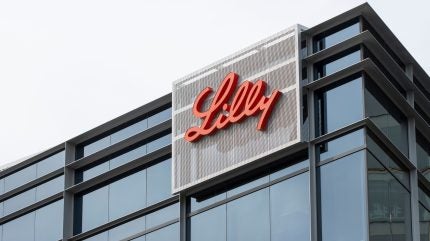
A modified dosing regimen with Eli Lilly’s Alzheimer’s drug Kisunla (donanemab) has shown a reduction in amyloid-related imaging abnormalities with oedema/effusion (ARIA-E).
Lilly announced data for the TRAILBLAZER-ALZ 6 Phase IIIb trial (NCT05738486) yesterday (29 October) at the 17th Clinical Trials on Alzheimer’s Disease (CTAD) Conference in Madrid, Spain.

Discover B2B Marketing That Performs
Combine business intelligence and editorial excellence to reach engaged professionals across 36 leading media platforms.
Kisunla is approved in the US, Japan, the UK and other countries. Lilly is discussing the results of this study with global regulators, with the intent to submit for a potential label update for Kisunla. ARIA-E was one of the big talking points of the US Food and Drug Administration (FDA) Advisory Committee (AdCom) meeting as they debated whether the drug should be approved in the US.
The TRAILBLAZER-6 trial evaluated the impact of different dosing regimens of Kisunla on the rates of ARIA-E and amyloid clearance in adults with early symptomatic Alzheimer’s disease. There were four arms in the study, one on the standard dosing and three on modified dosing schedules, but all patients received the same volume of the drug throughout the study. One of the modified dosing arms met the primary endpoint of the proportion of participants with any occurrence of ARIA-E by week 24.
The only difference between the modified titration and the standard dosing regimen is the shift of one vial from the first infusion to the third infusion. Patients on the standard dosing regimen received two vials (700mg) of Kisunla for the first three infusions, then four vials (1,400mg).
Meanwhile, patients on the modified titration received one vial (350mg) for the first infusion, two vials for the second infusion, three vials (1,050mg) for the third infusion, and four vials per infusion thereafter.

US Tariffs are shifting - will you react or anticipate?
Don’t let policy changes catch you off guard. Stay proactive with real-time data and expert analysis.
By GlobalDataThe incidence of ARIA-E was 14% in patients receiving the modified titration compared with 24% for those receiving the standard dosing regimen, a 41% lower relative risk. The largest ARIA-E reduction with the modified titration was seen in apolipoprotein E (APOE4) homozygotes, carriers of a known genetic risk factor for developing Alzheimer’s disease. In these patients, 19% had ARIA-E on the modified titration as compared to 57% on the standard dosing regimen, resulting in a 67% lower relative risk.
Patients on the modified titration of Kisunla only saw a slight difference in reduction of amyloid plaque and P-tau217 67% from baseline compared to 69% for patients on the standard dosing regimen. The drug acts by removing amyloid plaques and P-tau217 from the brain to slow the progression of the disease, both of which are believed to be causes of Alzheimer’s disease.
Eli Lilly neuroscience R&D group vice president Dr Mark Mintun said: “Lilly is confident in the benefits of Kisunla’s currently approved dosing regimen and is excited that these results reveal a path to potentially improving Kisunla’s profile by reducing the risk of ARIA-E. The modified titration could offer continued convenience of once-monthly dosing and limited duration treatment while also reducing ARIA-E and maintaining similar amyloid plaque removal.”
Despite Kisunla’s UK approval, the drug will not be available on the National Health Service (NHS) as it does not represent “good value”. There is only one other drug on the market with the same mechanism of action, Leqembi (lecanemab), developed by Eisai and Biogen. A third drug on the market, Eisai and Biogen’s Aduhelm (aducanemab) received accelerated approval, but following issues with brain swelling, the companies pulled the candidate off the market and focused efforts just on Leqembi.





